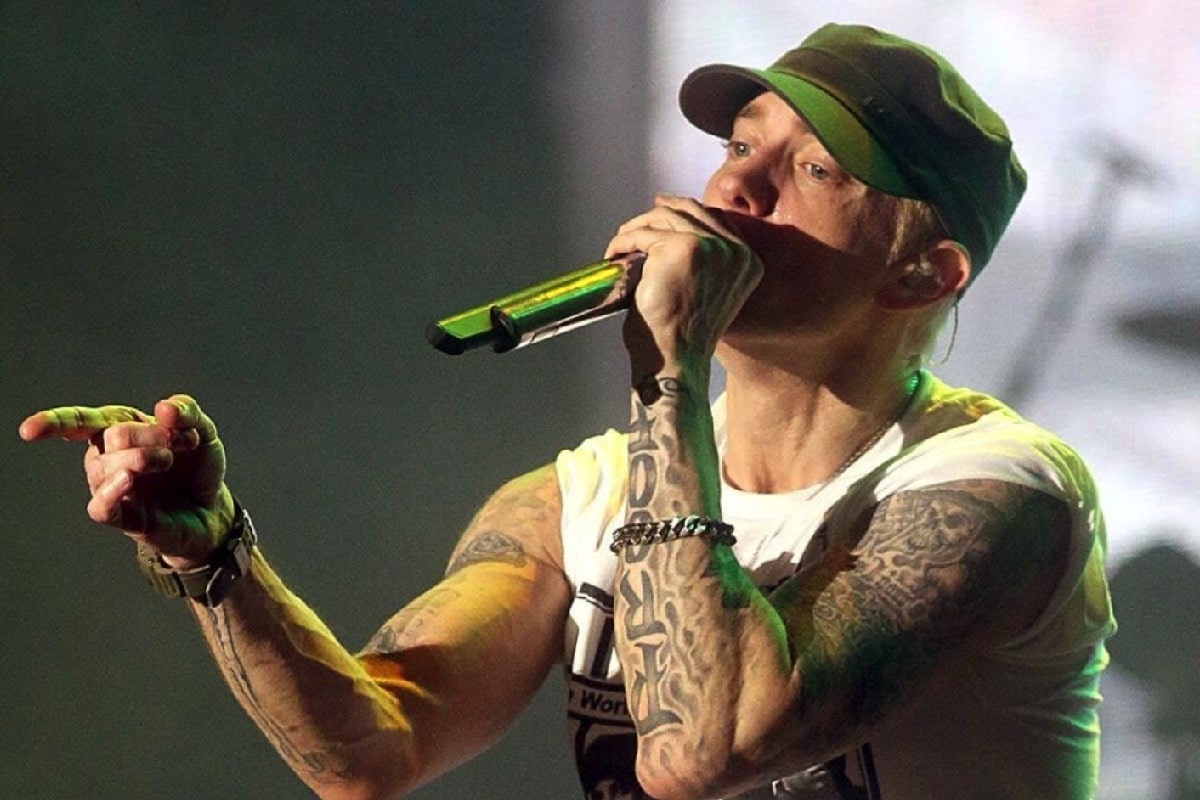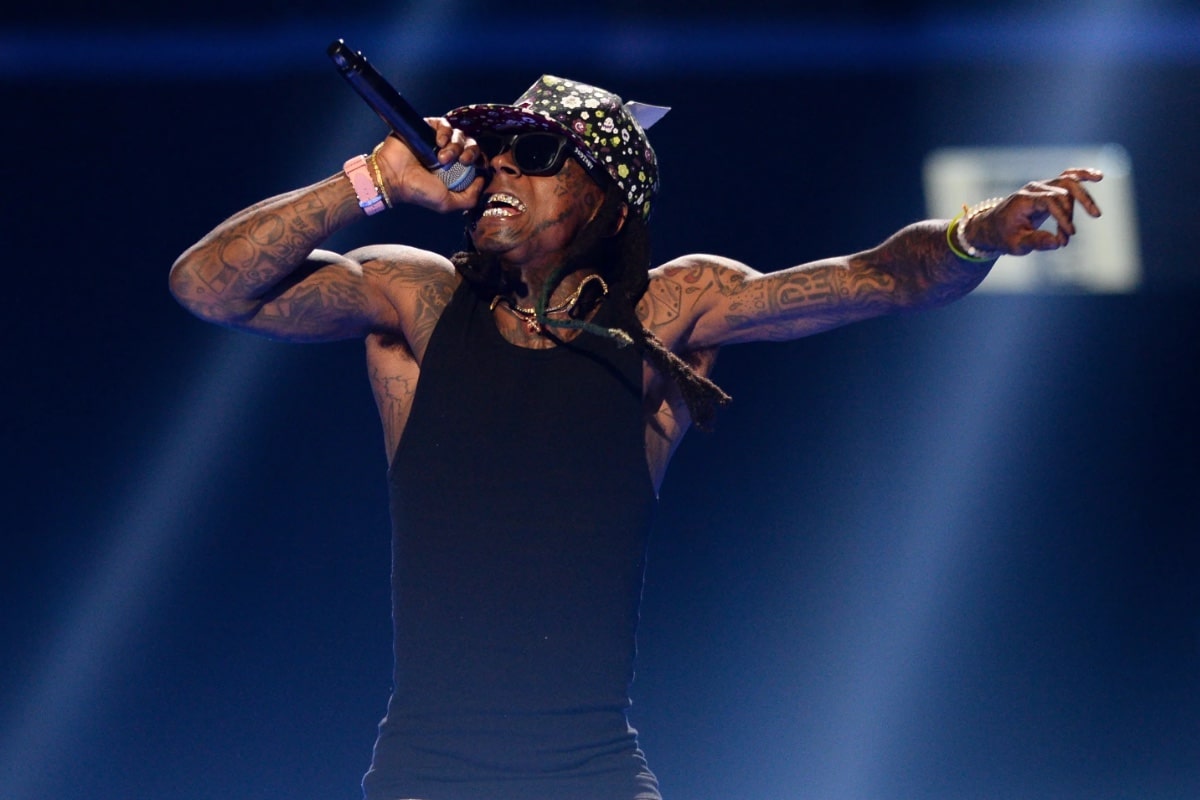Little Brother, comprising of MCs Phonte, Big Pooh, and their prodigious producer 9th Wonder, has been nothing short of a revelation in the rap domain. Their debut in the early 2000s heralded the resurgence of a sound that was deeply rooted in the soulful cadences of yesteryears while also pushing the boundaries of contemporary hip-hop.
While commercial giants towered with their bling and bravado, the Durham, North Carolina trio carved a niche, staying true to the essence of hip-hop and weaving soulful narratives that resonated deeply with life’s realities. Each of their albums is a testament to their artistic vision, encapsulating a journey that melded introspective lyricism with innovative beats, and in the process, setting the gold standard for underground rap. From the soul-drenched samples of 9th Wonder to the candid bars of Phonte and Big Pooh, Little Brother’s contributions have been seminal, offering a blueprint for independent artists and solidifying their stature as icons of the underground rap movement.
So let’s get into it. From their soulful debut, The Listening, to 2005’s The Minstrel Show and 2019’s May the Lord Watch, we rank every Little Brother album, from worst to best.
Leftback
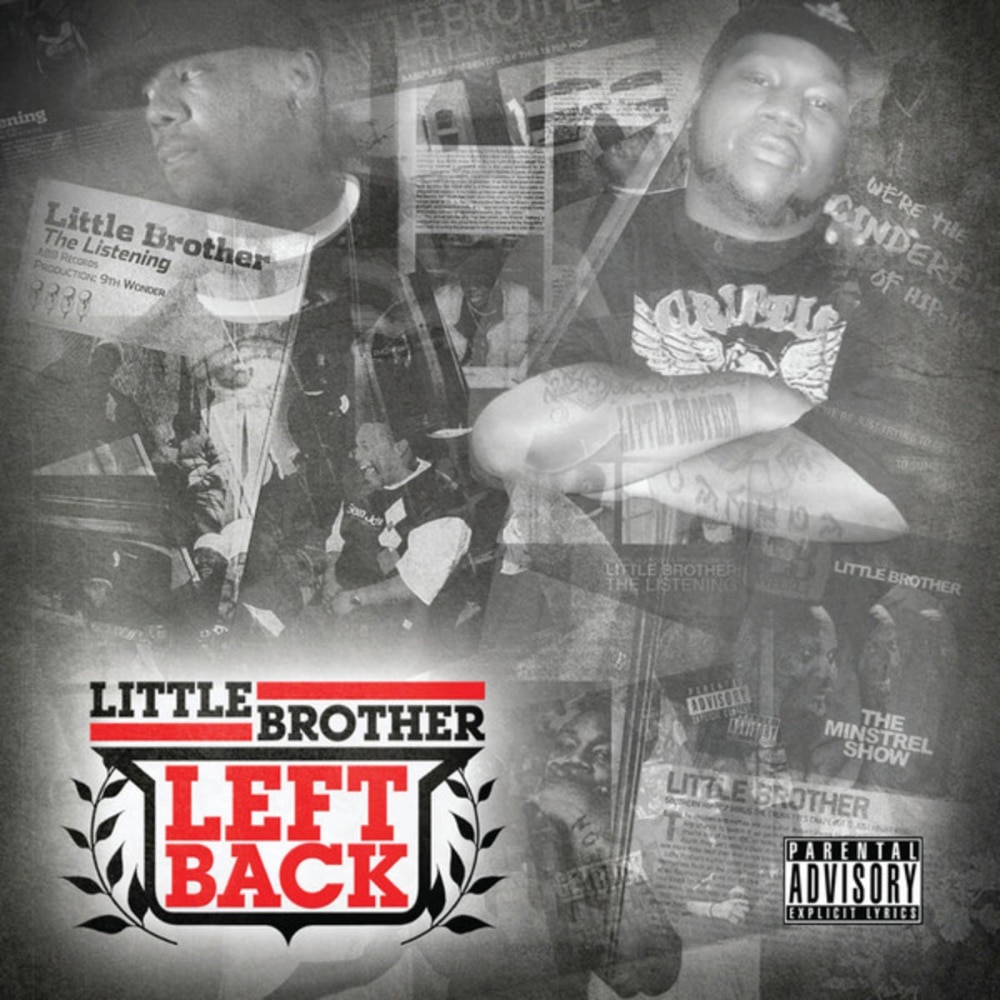
Released: April 20, 2010
Label: Hall of Justus, Traffic
Singles: “Curtain Call” • Features: Jozeemo, Yahzarah, Truck North, Median, Chaundon, Bilal, Darien Brockington, Quiana, Carlitta Durand, Darien Brockington, Khrysis, Torae
In any discussion around Little Brother’s discography, Leftback stands as an intriguing project. Landing fifth on this list, it’s an album that carries both commendable moments and instances that left some of the loyal fanbase yearning for more. Released in 2010, Leftback came at a time when the group was navigating through the choppy waters of change, and that transitional energy is palpable throughout the record. Production-wise, the absence of 9th Wonder is evident. It’s like watching the Chicago Bulls without Jordan during his hiatus – the talent’s still there, but that magical touch is notably missing. Tracks like “Curtain Call” and “Tigallo For Dolo” exemplify the best of what Phonte and Big Pooh can do, with bars that oscillate between introspective musings and candid cultural commentary. But, at times, Leftback feels like it’s searching for a sonic identity, straddling between the classic Little Brother sound and newer, experimental leanings. Criticism aside, the album isn’t without its virtues. Phonte and Big Pooh remain lyrically dexterous, their wordplay sharp and their chemistry undeniable. However, in the grand tapestry of Little Brother’s legacy, Leftback is an album that, while solid in its own right, pales somewhat in comparison to their other iconic releases. That said, even a lesser-regarded Little Brother album contains more depth and nuance than many artists’ best work. Leftback remains a shining example of their enduring talent and a chapter in their storied journey, showcasing a duo in transition but still deeply rooted in their commitment to real hip-hop.
May the Lord Watch
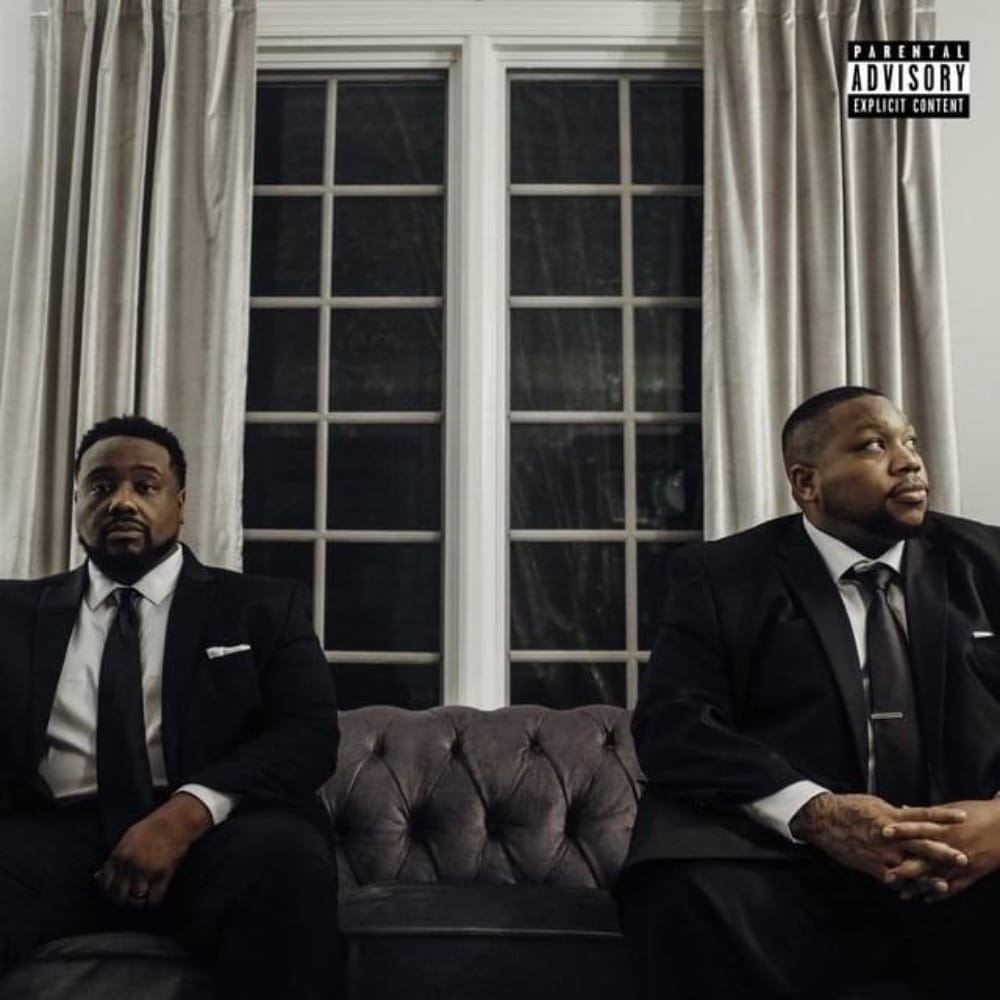
Released: August 20, 2019
Label: Imagine Nation, For Members Only, Empire
Singles: N/A • Features: N/A
Taking the fourth spot, May the Lord Watch stands as a testament to resilience, revival, and rap prowess. After a near-decade hiatus, Little Brother’s return in 2019 with this album was akin to a seasoned boxer stepping back in the ring: there might’ve been some initial doubts, but once the first punch landed, it was clear they hadn’t missed a step. Right off the bat, “Sittin Alone” and “Picture This” showcase the duo’s signature combo – mature reflections paired with potent lyricism. This album isn’t just a nostalgia trip, though; it’s a demonstration of evolution. Little Brother delves deep, exploring themes of aging in the hip-hop game, the loss of loved ones, and societal shifts. It’s like they’re offering a hip-hop handbook for navigating the complexities of adulthood, and they do so with grace. May the Lord Watch is layered with samples and beats that harken back to their earlier works but with a fresh twist. The absence of 9th Wonder, while felt, doesn’t diminish the project’s brilliance. Instead, it shines a light on Phonte and Big Pooh’s unwavering skill, proving their ability to adapt and overcome in an ever-evolving hip-hop landscape. In the grand scheme, May the Lord Watch is a celebration. It’s a nod to loyal fans, a handshake with the new ones, and above all, an assertion of Little Brother’s timeless place in hip-hop lore. While it might be pegged fourth on this list, its significance in signaling their triumphant return to the game is unmatched.
The Listening
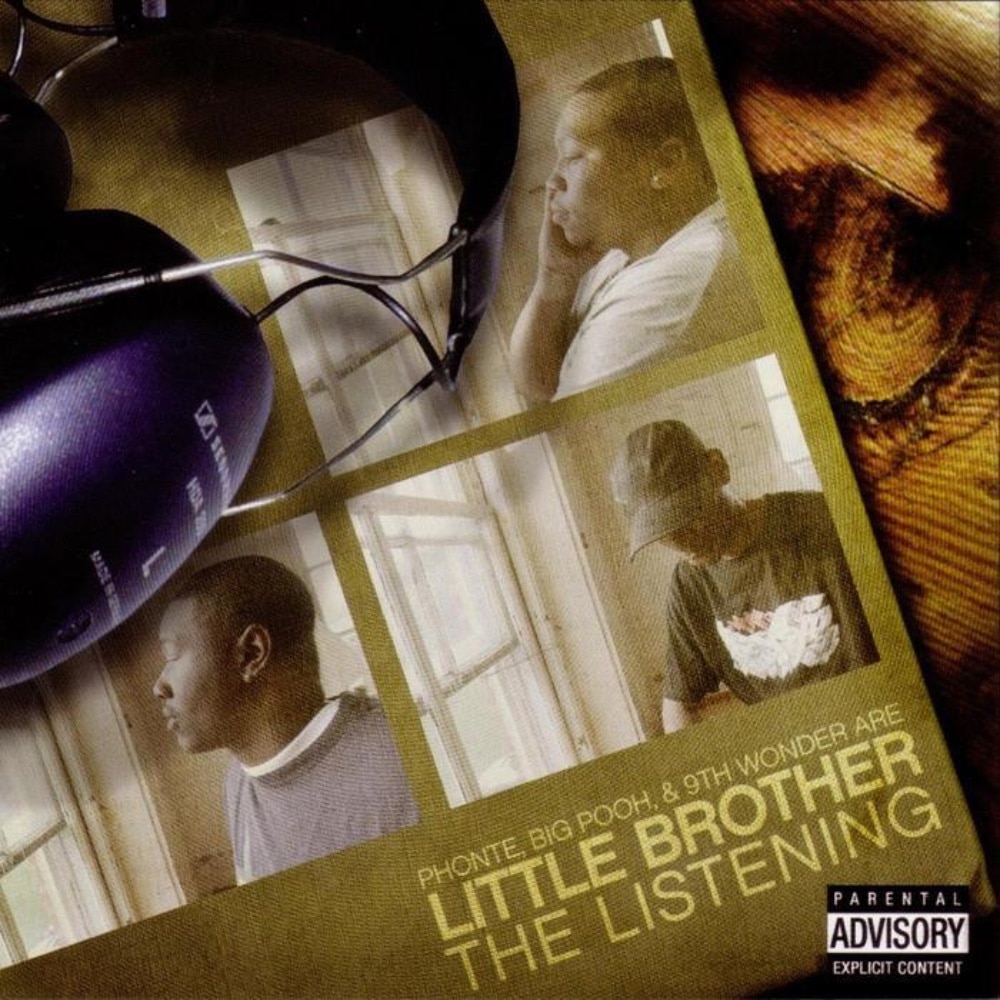
Released: February 25, 2003
Label: ABB
Singles: “Speed”, “Whatever You Say”, “The Way You Do It” • Features: N/A
When talking heavyweight debuts, The Listening is undoubtedly one of those albums that shifted the tectonic plates of underground hip-hop. Dropped in 2003, this Little Brother classic was a breath of fresh air, breaking away from the bling era’s ostentation and returning to raw, heartfelt lyricism underlined by soul-infused beats. It was like a renaissance painting in an era of digital prints, and it spoke volumes. From tracks like “Whatever You Say” to “Speed,” the trio – Phonte, Big Pooh, and 9th Wonder – laid out a buffet of moods and stories. They touched on every aspect of life, from the grind and hustle of an artist’s life in “Nighttime Maneuvers” to the nostalgic tribute to their early days in “Home.” It wasn’t just an album; it was a narrative, a diary entry, a confession. But beyond the lyrics, what really propelled The Listening to its iconic status were those 9th Wonder beats. They encapsulated the essence of the golden age, with jazz, R&B, and soul samples that were both innovative and deeply nostalgic. The way “Make Me Hot” seamlessly transitioned into the introspective “The Yo-Yo” was like watching a maestro at work, crafting symphonies in a studio. Ranking third in Little Brother’s catalog might make it seem like The Listening is bronze-tier, but don’t get it twisted. In the broader context of hip-hop, this album’s influence resonated far and wide. It didn’t just mark the emergence of a potent trio; it was a clarion call for authenticity in a genre teetering on commercialized clichés.
The Minstrel Show
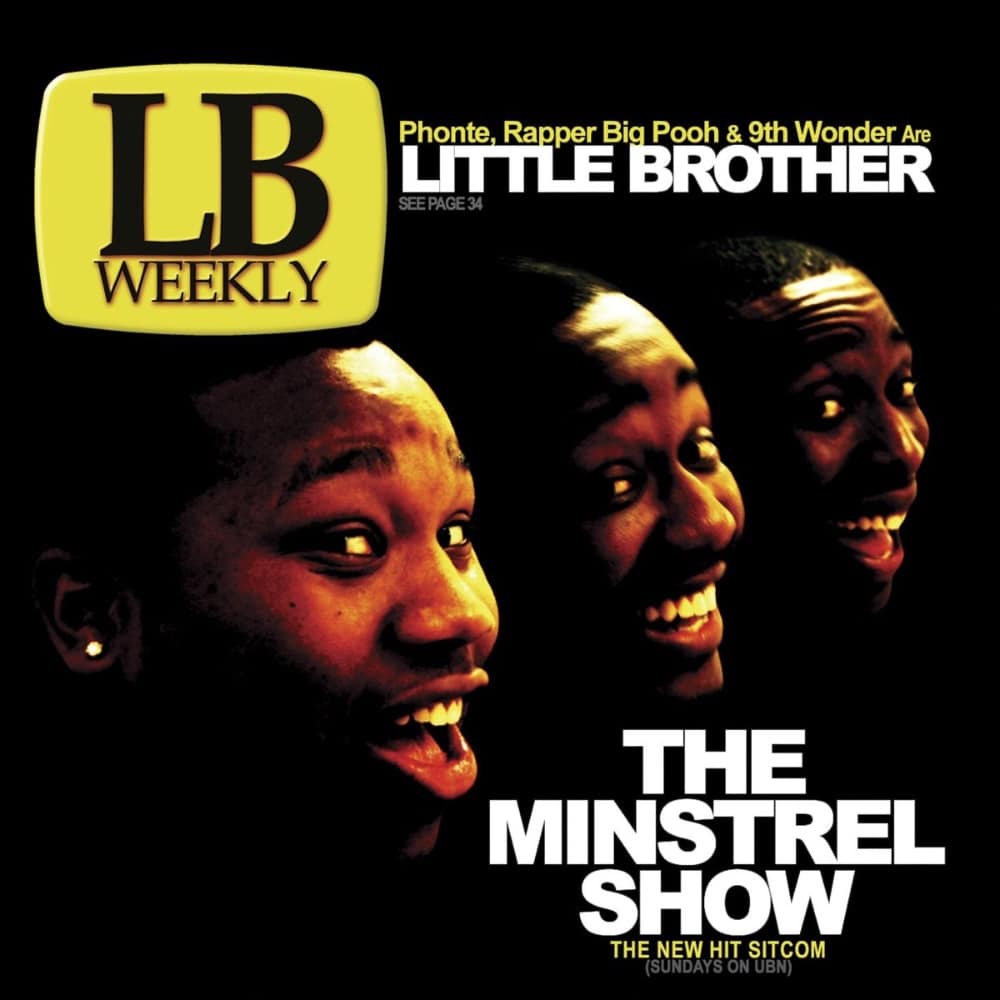
Released: September 13, 2005
Label: Atlantic
Singles: “Lovin’ It”, “Slow It Down” • Features: Darien Brockington, Elzhi, Chaundon, Joe Scudda, DJ Jazzy Jeff
The Minstrel Show isn’t just another album – it’s a profound statement, an audacious piece of art that didn’t just solidify Little Brother’s legacy, but challenged the very ethos of the rap game in 2005. This album wasn’t content with simply laying down bars or proving the crew’s lyrical prowess; it dove deep, exposing the charades and caricatures of the hip-hop industry and the media’s portrayal of Black artists. Right from its satirical title, The Minstrel Show serves as a biting critique. It throws shade at the industry’s appetite for caricatured versions of Black excellence and the stereotypes they pushed artists into. But the brilliance of Little Brother was that they didn’t just critique – they juxtaposed this with a dazzling display of what real, unfiltered hip-hop looked like. With tracks like “Beautiful Morning” and “Not Enough,” they showcased lyrical excellence wrapped in genuine emotion, devoid of artifice or pretense. 9th Wonder, with his Midas touch, ensured the beats on this album were nothing short of regal. Take “Lovin’ It” as a prime example – a track that encapsulates the essence of the entire album, balancing critical commentary with sheer musical elation. Phonte and Big Pooh, on the other hand, were like verbal acrobats, seamlessly flipping between biting satire and vulnerable introspection. Slotting The Minstrel Show at the second position is a testament to its lasting impact and undeniable quality. Little Brother didn’t just craft an album; they gave hip-hop heads a masterclass in social commentary, proving that rap can be both enlightening and fire at the same damn time.
Getback
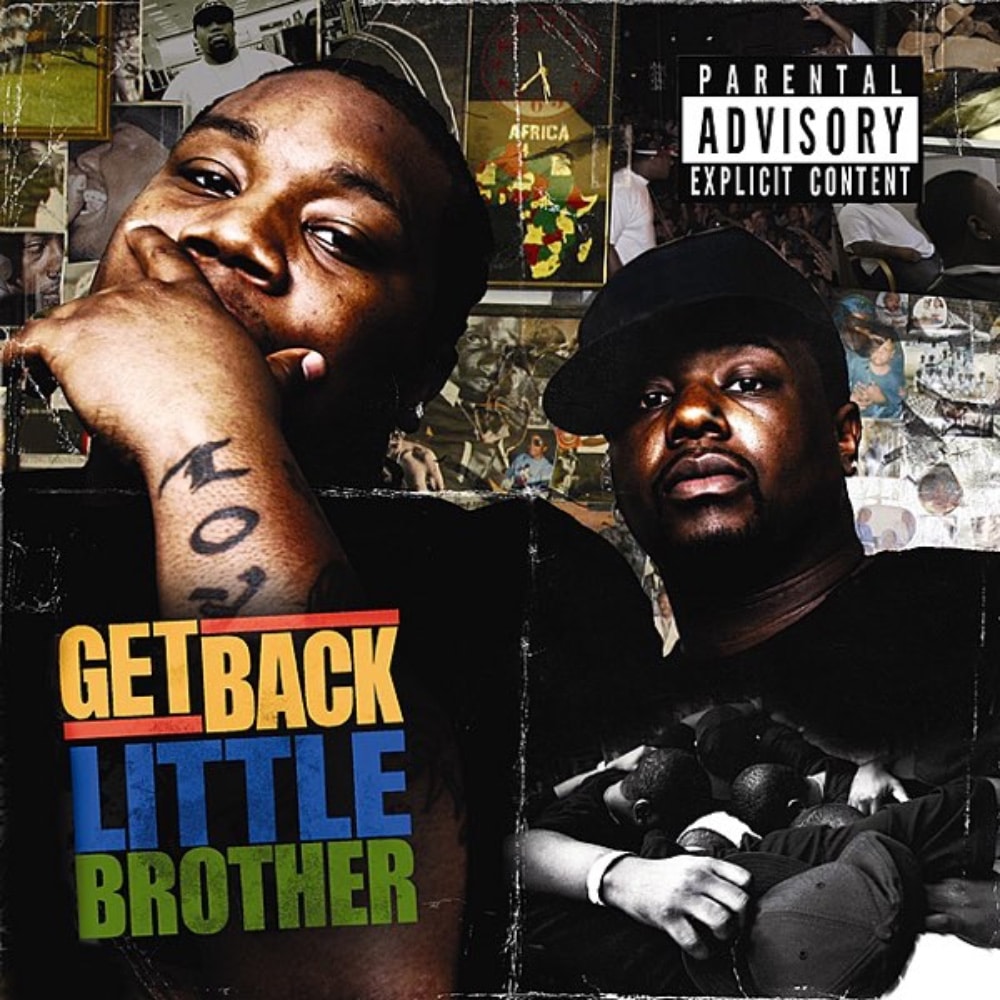
Released: October 23, 2007
Label: ABB Records, E1 Entertainment Distribution
Singles: “Good Clothes”, “That Ain’t Love” • Features: Carlitta Durand, Lil Wayne, Dion, Darien Brockington, S. Graham, Jozeemo
In 2007, with hip-hop’s landscape shifting rapidly, Little Brother hit us with this project, a record that didn’t merely adapt to the changes but shaped them. Getback was more than just a collection of songs; it was a reflective journey. The departure of 9th Wonder could’ve sent the group spiraling, but Phonte and Big Pooh elevated, revealing an even more mature and nuanced side. They delved into the complexities of relationships in “After the Party” and took on the challenges of fame in “Good Clothes,” painting a vivid picture of their evolution both as artists and men. But what makes Getback ascend to the top spot isn’t just its introspective depth. Nah, it’s the impeccable synergy between the raw lyrics and the soul-infused beats. The album pulses with an earnest energy, blending melancholic melodies with thought-provoking bars. Tracks like “Dreams” aren’t just head-nodding bops; they’re profound meditations on aspiration and reality. Little Brother brought an unmatched level of sincerity with Getback. In a genre often caught in the crossfire of authenticity debates, this album stood as a beacon, an unapologetic testament to true hip-hop. It wasn’t just Little Brother’s crowning achievement; it was a love letter to every fan who yearned for rap that resonates, both in the speakers and the soul. And that’s why, when ranking their discography, Getback reigns supreme.





